Giro d'Italia team by team review: Part 2
Cyclingnews writers cast their verdict on each team's performance
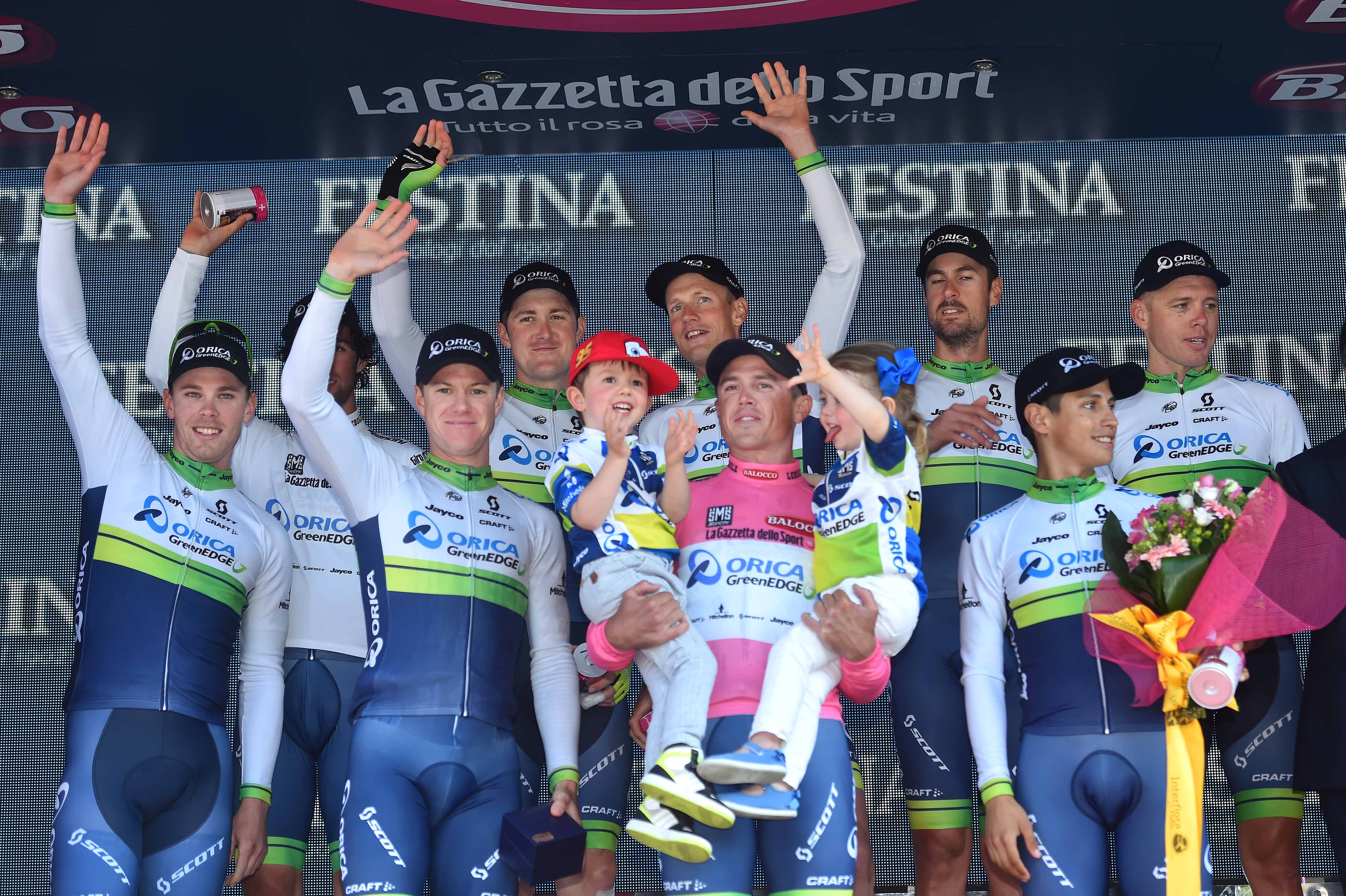
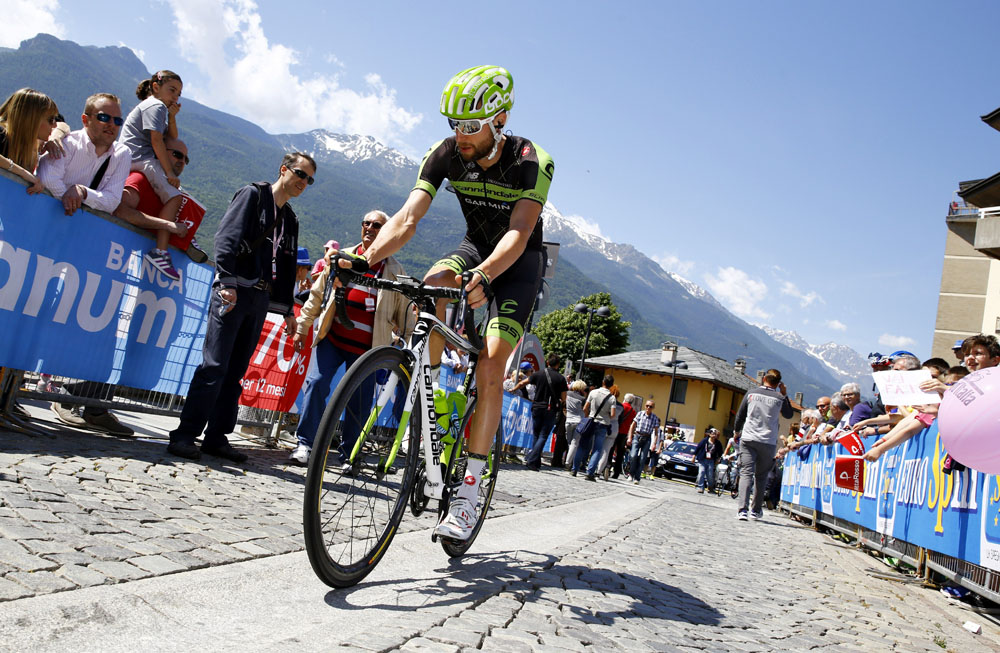
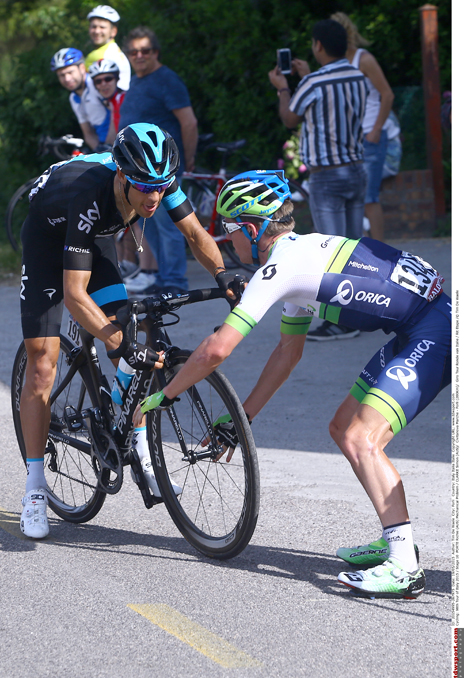

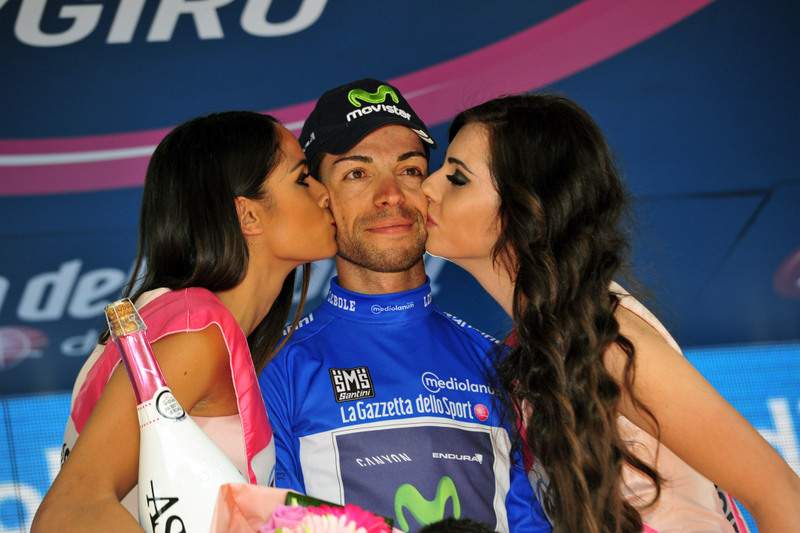
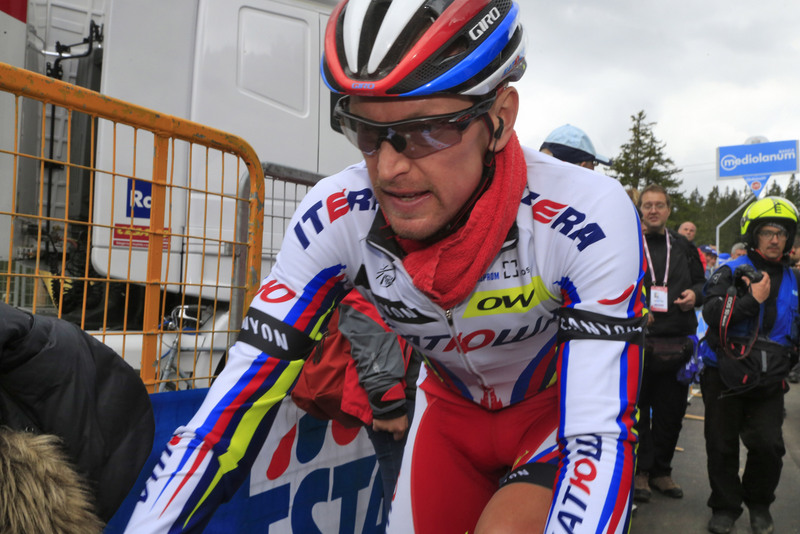
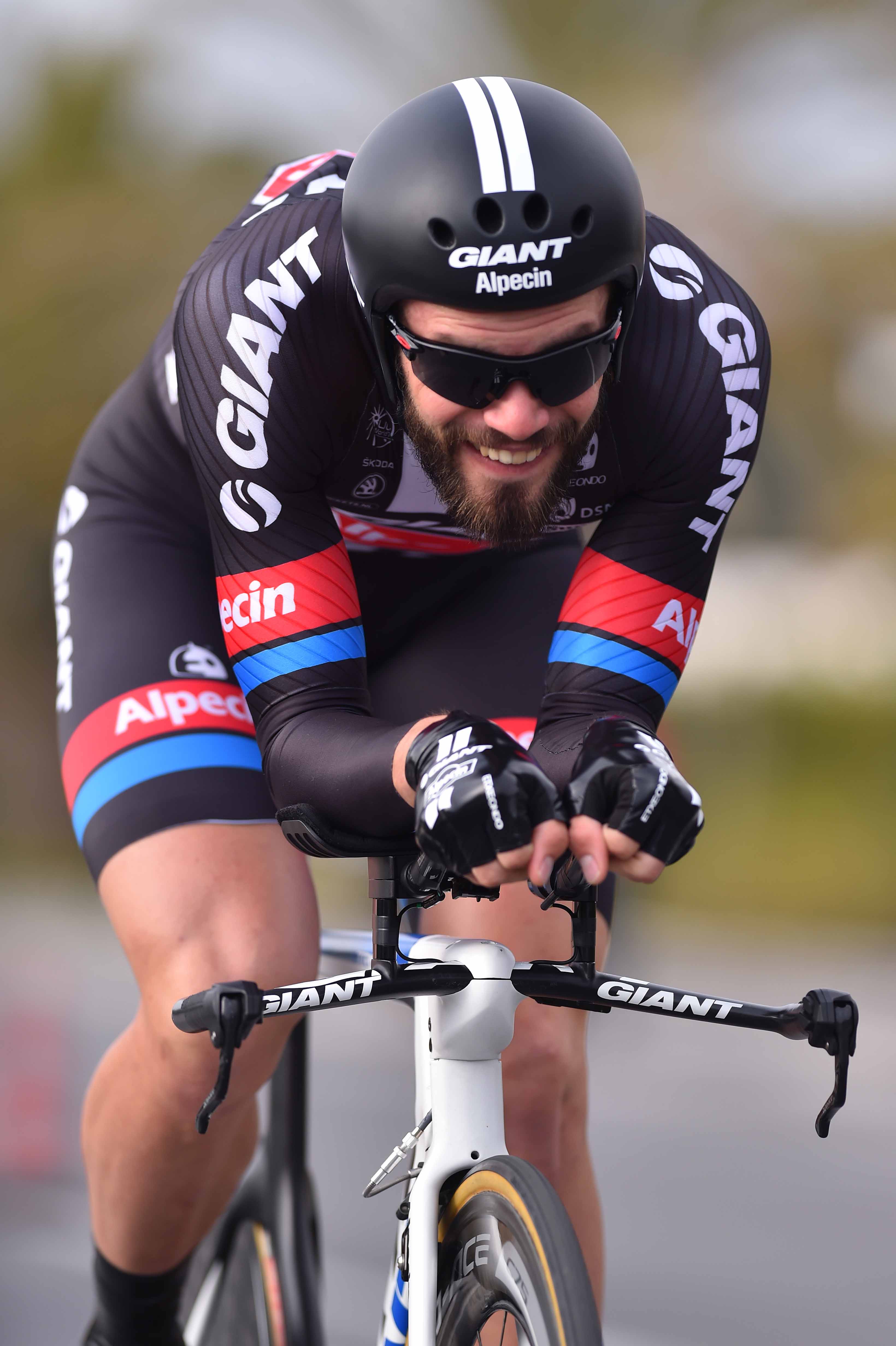
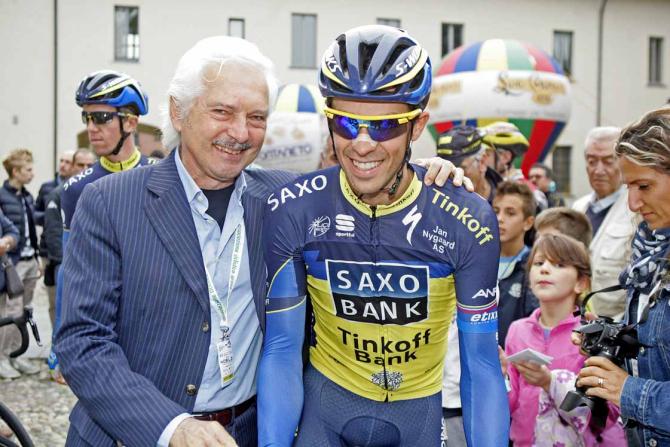
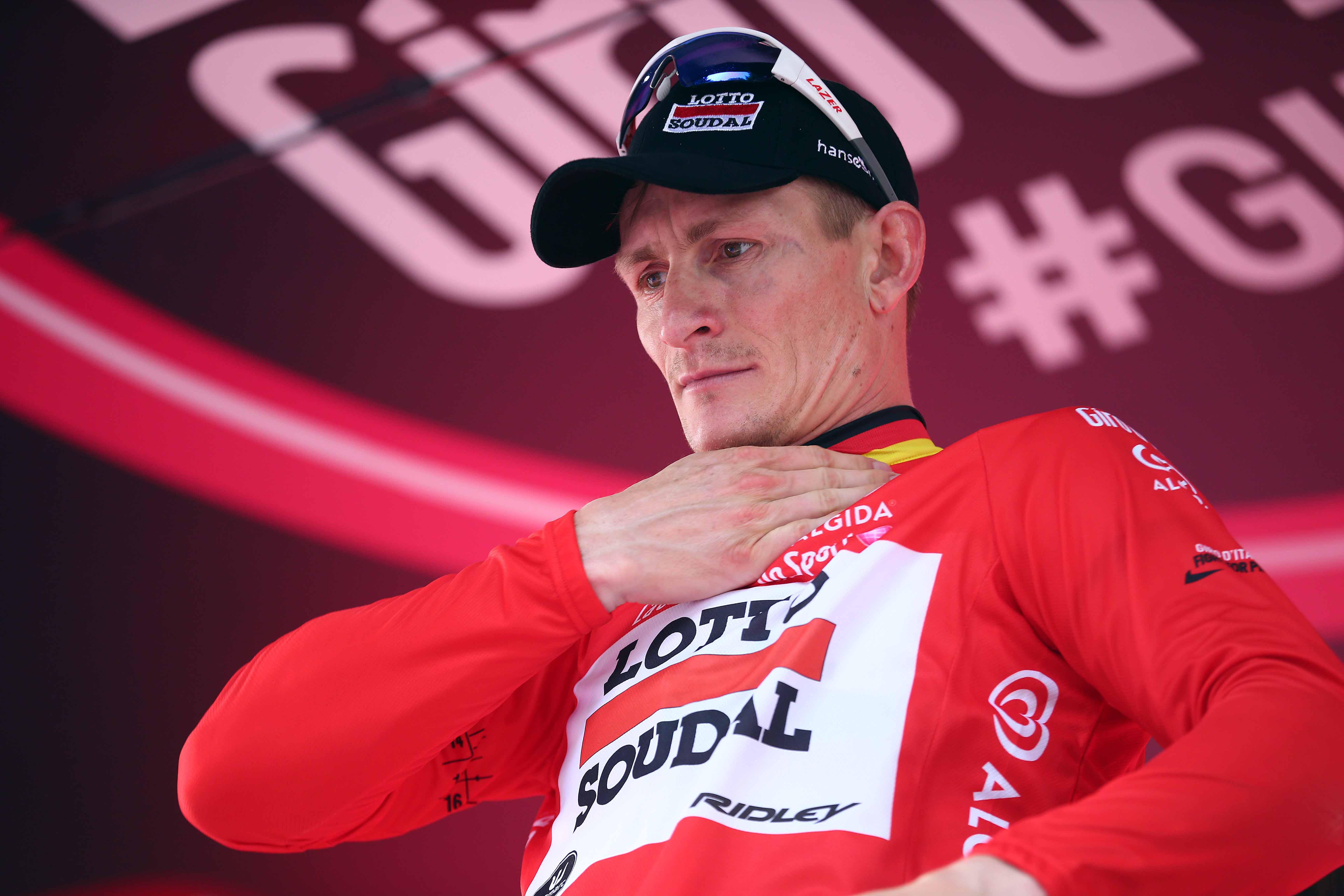
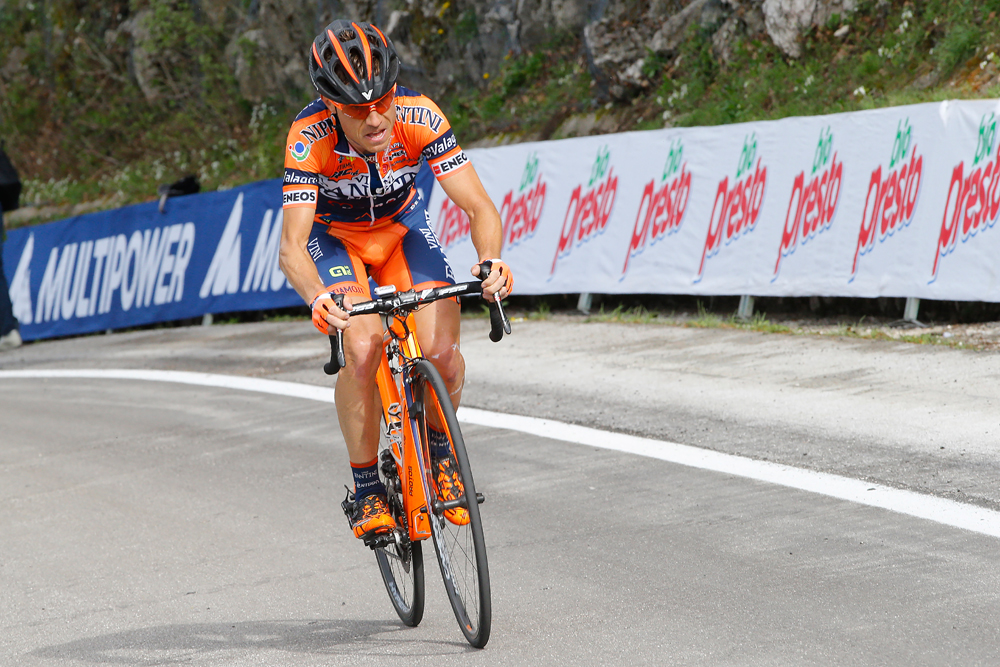
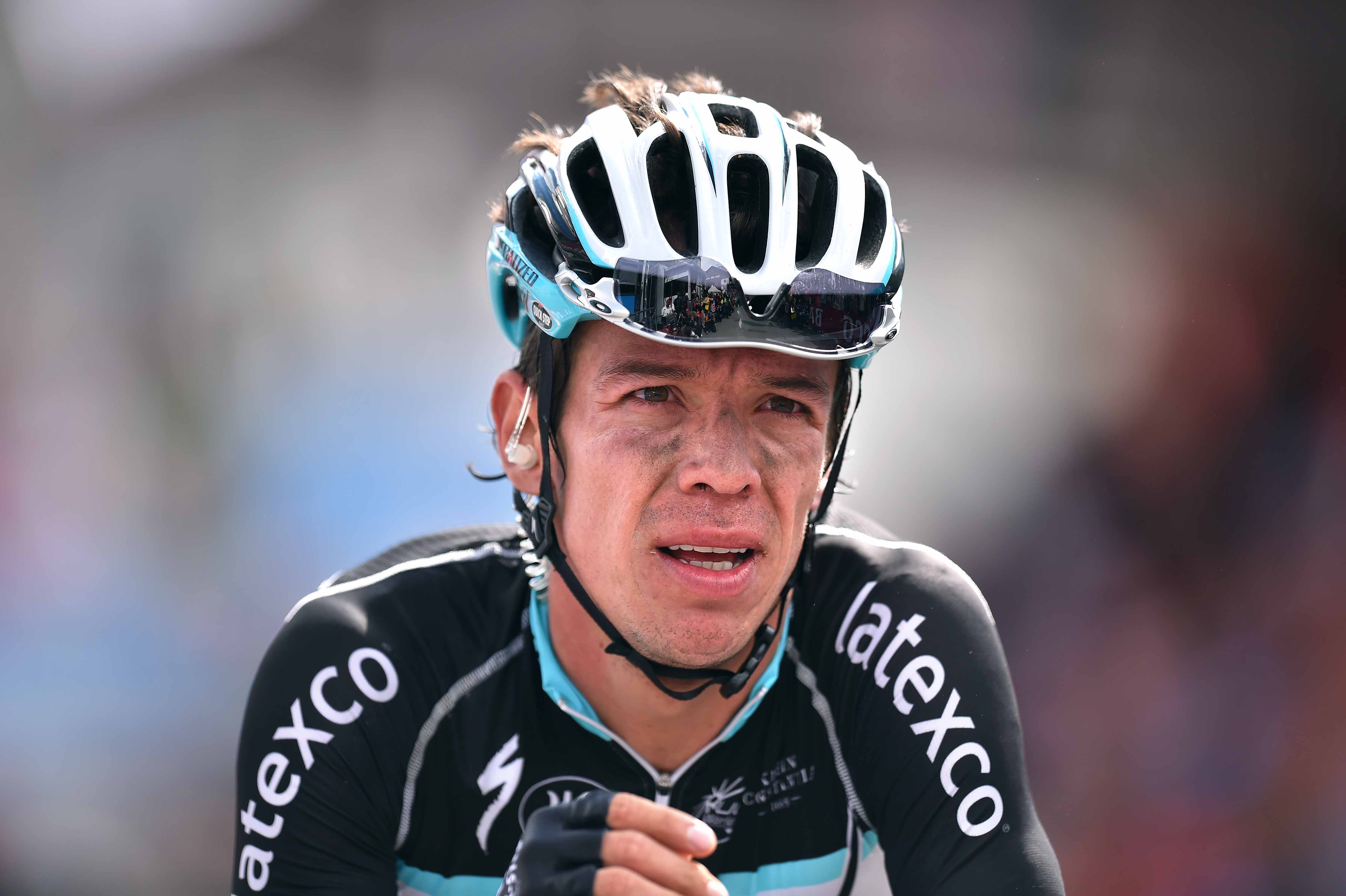
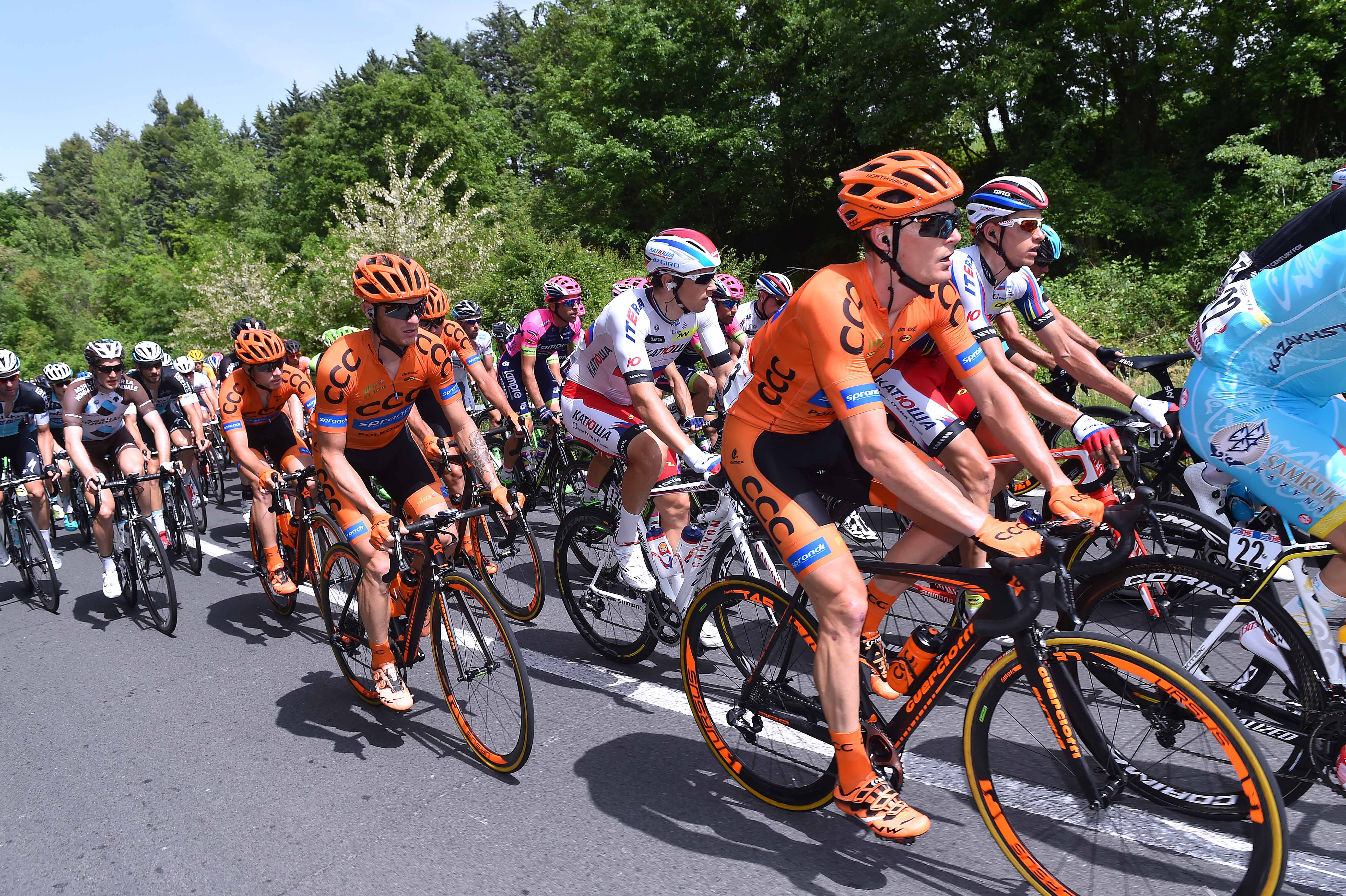
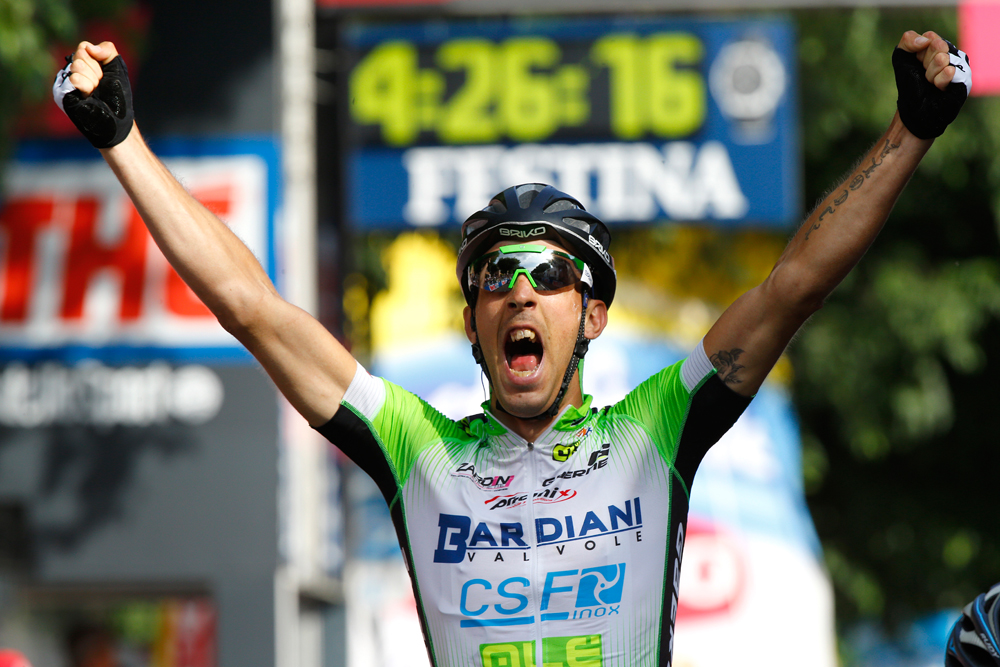
Every team comes into every race with their own ambitions. Such is the nature of sport, however, not everyone can achieve all they set out to. In the second of a two-part feature, Cyclingnews analyses the performance of 13 teams at the Giro d'Italia, looking at whether they hit, surpassed or fell short of their pre-race ambitions.
Porte says ‘marginal gains' motorhome at the Giro d’Italia is a sanctuary
Clarke continues Orica-GreenEdge's pink jersey run at the Giro d'Italia
Giro d'Italia: Richie Porte docked two minutes
Giro d'Italia: Orica Green-Edge pragmatic after time penalty for Clarke
Bardiani-CSF ignore MPCC cortisol regulations at Giro d’Italia
Cunego breaks collarbone in Giro d’Italia crash
Hesjedal enjoys going on the attack one last time at the Giro d’Italia
Pre-race expectations: The Australian WorldTour outfit came into the 2015 Giro d’Italia with a good grasp of what it could and couldn’t accomplish. Rather than trying for a result in the general classification, Orica focused their efforts on stage wins, especially during the opening 17.6km team time trial from San Lorenzo al Mare to San Remo.
Verdict: Mission accomplished. The team left this year's Giro having earned two stage wins, three podiums and four days in the maglia rosa.
Orica stormed into the Giro with a victory in the opening team time trial, beating Alberto Contador’s Tinkoff-Saxo team by seven seconds and Fabio Aru’s Astana squad by 13. As the first Orica rider to cross the finish line, Simon Gerrans wore the first maglia rosa of the race.
Michael Matthews was the next Orica rider to take the jersey after finishing second during stage 2. Matthews won stage 3 in the jersey but then surrendered it the next day to teammate Simon Clarke, who finished second behind solo winner Davide Formolo (Cannondale-Garmin) during stage 4.
Clarke made headlines again during the race, this time for giving his wheel to fellow countryman Richie Porte (Team Sky), who had punctured near the finish of stage 10. Porte was eventually penalized for taking the assistance, but Clarke and Orica gained a lot of fans that day.
Get The Leadout Newsletter
The latest race content, interviews, features, reviews and expert buying guides, direct to your inbox!
Luke Durbridge finished the team’s race off with a second-place finish on the final day after taking part in a gutsy two-rider move late in the race, eventually falling victim to the six-day sprinting skills of breakaway companion and stage winner Ijlo Keisse (Etixx-QuickStep). (PM)
Pre-race expectations: Despite having the 2012 winner Ryder Hesjedal on the team roster, Cannondale-Garmin probably didn’t head into the Giro d’Italia with high hopes for top results. Since the off-season merger between Jonathan Vaughters’ Slipstream-run Garmin-Sharp team and the Italian Cannondale, anything but bad luck seemed hard to come by. The team had only two wins – none in WorldTour events – going into the Giro.
Verdict: May turned out to be a pretty good month for the green argyle team. Davide Fromolo started things rolling with a win on stage 4, jumping away from a breakaway group late in the race and holding the chasers off by 22 seconds. The 22-year-old’s first Grand Tour was a revelation.
Across the Atlantic in the US, the team’s Andrew Talansky, who had dropped out of the Tour of California earlier in the month with allergies and a virus, rode to a convincing win in the US Professional Time Trial Championship.
But it was Hesjedal’s performance in the final week of the Giro that really turned the tide for Cannondale-Garmin’s fortunes. A poor team time trial and some bad luck left Hesjedal in a deep rut during the first week, but the 34-year-old Canadian proved he is still near the top of his game by steadily climbing into the top 10 and eventually finishing fifth overall.
On the strength of two top-10 finishes during the second week, Hesjedal had climbed to 13th overall coming out of the second rest day. He cracked the top 10 after his sixth-place finish during stage 16, and his Herculean effort on the daunting stage 19, where he finished second to Astana’s Fabio Aru, moved him to seventh. He repeated the second-place ride behind Aru the next day to move into fifth overall.
There was a lot to bring hope to the Cannondale-Garmin team in May – Joe Dombrowski finished fourth overall in California and was second in the US pro road race – now it’s up to Vaughter’s green argyle squad to keep the momentum rolling. (PM)
Pre-race expectations: After his stellar early season in which he won the Volta Catalunya, Paris-Nice and Giro del Trentino, Richie Porte was a realistic contender for the Giro d'Italia overall, and was given the blessing of chief Dave Brailsford and the team's full support. No detail was overlooked, with the team even renting a full motor home for Porte to sleep in throughout the Giro to ensure he would be well-rested. The team hedged their bets a little by including sprinter Elia Viviani in the squad for stage wins, something Sky only reluctantly affords their sprinters in the Grand Tours.
Verdict: Team Sky started the Giro on the back foot by only managing ninth in the team time trial and giving up a valuable 20 seconds to Alberto Contador's Tinkoff-Saxo team, but in the first week, Porte sat back while Astana and Tinkoff-Saxo attacked each other like rabid dogs and seemed to be riding the smartest race. When Aru and Contador locked horns on the stage to Abetone, Porte cooly marked every move. Likewise on stage 8 to Campitello Matese. It seemed he could do no wrong, and looked to be a real danger for the third week. But all of that unravelled on stage 10, when an untimely puncture in the blazing fast finale not only set him back 47 seconds because of the stop for a wheel change, he was then penalized two minutes because the wheel came from a rider from another team - Orica-GreenEdge's Simon Clarke.
The controversy that followed certainly didn't help Porte, and the cracks started to show on stage 12, when Contador slipped away to gain another handful of seconds. A crash on stage 13 just outside the 3km banner set Porte back another two minutes, and all hope of making up his deficit in the 59.4km time trial began to fade away. After a disappointing time trial and a disastrous day in the mountains, Porte abandoned.
Viviani's sprint win on stage 2 and Vasil Kiryienka's time trial victory remain the team's main highlights from the Giro. (LW)
Pre-race expectations: BMC came into the Giro with Darwin Atapuma as an outside hope for the general classification, and a team full of hitters in search of stage wins. With former World Champion Philippe Gilbert for the punchy uphill finishes, a host of rouleurs, and Rick Zabel for the sprints the team cast a wide net across the three weeks hoping to catch a few fish. Their GC ambitions were realistically for a top-10 finish rather than a podium, and a shot at the overall teams classification.
Verdict: An emotional Atapuma started the Giro d'Italia only a day after learning of the death of his mother, and he ran into some bad luck in the first week with crashes, losing a minute on the first sprint stage. But the team rallied and kept trying for stage wins, with Gilbert coming close on stage 3, Amaël Moinard making the breaks on stage 4 and 9. After days of attacking, Gilbert finally got his stage win in Vicenza on stage 12, and he followed up with another on stage 18 in Verbania.
Damiano Caruso, Atapuma and Moinard had strong performances in the third week, with Caruso holding onto eight overall, Moinard in 15th, and Atapuma moving up into 16th overall. Gilbert won the combativity classification, and the squad showed their consistency with a second place in the teams time and points classifications to Astana, second in the points and intermediate sprint classifications with Gilbert.
Pre-race expectations: With Nairo Quintana deciding to focus on the Tour de France rather than defending his Giro d’Italia crown, Movistar sent a team that included several riders capable of posting a top-10 result. Third place overall at the Vuelta Ciclista al Pais Vasco saw Ion Izagirre’s enter the race with a new level of expectation for a GC result while JJ Lobato had been one of the riders of the early-season with a stage win a fair aim. Former maglia rosa Beñat Intxausti would be the main rider though with team manager Eusebio Unzué looking for the ‘confirmation’ of his talent.
Verdict: Intxausti’s stage win repaid the faith placed in him by Unzué that also saw the mountains classification become a goal for the team. Giovanni Visconti and Ruben Fernandez receive marks for determination to make the breakaway and animating the race. The efforts in chasing KOM points saw Intxausti fade in the final week and finish in 29th place overall just as Visconti found his climbing legs to move into the lead after stage 19, holding the jersey until Milan.
A stage win and mountains classification victory would have been around par for the Movistar team selected for this Giro but they can look at the race overall and claim a surprise success - Andrey Amador, one of the great inspirational stories in the peloton, rose to the occasion as the team’s GC rider to record his best Grand Tour result. Following the stage 14 time trial, Amador found himself sitting in third place overall after a consistent start to the Giro. The high mountains weren’t suited to his characteristics but Amador willed himself on to finish fourth overall and announce himself as one of the rider’s of the race.
While the team carried some passengers to Milan, Movistar was never going to win the Giro overall this year but can be content nevertheless with their showing. Lobato was unfortunate to crash out with a broken collarbone but he and Izagirre would have expected more from themselves. A Nairo Quintana victor at the Tour and the results of the Giro will become academic for Movistar. (ZW)
Pre-race expectations: Ilnur Zakarin was a name on everyone’s lips pre-Giro after his Tour de Romandie victory but just what he could do over three weeks was a big unknown. Luca Paolini was the only non-Russian in Katusha’s team, which also included former stage winner Maxim Belkov and GC option Yuri Trofimov but they were largely an inexperienced Grand Tour team. Missing their sprinter Alexander Kristoff and number one GC rider Joaquim Rodriguez, Katusha’s Giro would be an opportunity to gauge the depth of their squad with little pressure in doing so.
Verdict: An early visit to the podium by Pavel Kochetkov to collect the mountains jersey suggested the team would look for their opportunities in breakaways. Trofimov and Zakarin were the most visible of the Katusha riders across the three weeks featuring at the pointy end of several stages.
Zakarin took an impressive stage win in Imola and just missed out on the Cima Coppi after leading up the Colle delle Finestre but the Russian remains an enigmatic rider having started the race with GC ambitions before going stage hunting. His limits in three-week racing remains unknown.
Trofimov looked set for a top-five finish overall on the strength of his Madonna di Campiglio ride when he finished second, but he faded in the final mountain stages to drop down to 10th.
However, the ill-timed tactics of Katusha at the base of the Mortirolo, directeur sportif Dimitri Konychev explained he did not know Alberto Contador had suffered a mechanical, drew ire from Oleg Tinkov with the Russian politics of the peloton reaching boiling point.
Zakarin’s Giro ensured that he will be a rider to watch throughout the year but having fielded a young team without their best two riders, Katusha clearly stated the Tour is their grand aim for 2015 and in Kristof, they have a certified stage winner for July. (ZW)
Pre-race expectation: Luka Mezgec took over sprinting duties at last year’s Giro after Marcel Kittel was forced to withdraw due to illness, going on to win the final stage of the race on virtually home soil in Trieste. Mezgec would be the team’s top sprinter this time round but with just two top 10’s and stage win to his name prior to the Giro, it appeared Mezgec would be riding into form over the thee weeks. The overall strategy for the team was announced as ‘day-by-day’ with breakaways marked as the best option for success.
Verdict: A somewhat disappointing Giro for Giant-Alpecin with Simon Geschke’s short stint in the mountains jersey a rare highlight considering the level of success the team has enjoyed in the Grand Tours over the last few seasons. Finishing with all nine-riders was a sign of perseverance but this is a team capable of much more. An under-performing Mezgec’s managed just one podium result, third place in Lugano, while an untimely mechanical on the Milan circuit seemed apt as the Slovenian never fired his best shot. Mezgec’s onboard footage did however show how to win a sprint, capturing Sacha Madolo moving through traffic and raising his arms in glory.
Geschke and Chad Haga were persistent in their attempts to infiltrate the breakaways in a Giro that was ‘anti-breakaway’ while Cheng Ji was solid toiling away when called upon. (ZW)
Pre-race expectation: Androni Giocattoli announced their intentions for the Giro would be delivering Franco Pellizotti to a high overall result and supporting Davide Appollonio in the quest for success on the flat sprint-friendly stages. Oscar Gatto, a former Giro stage winner, would be another card to play for the wildcard entrants but there were little expectations externally on Androni’s performances for this Giro. With the team selecting two debutants, Serghei Tvetcov and Gianfranco Zilioli, for whom the race would be a learning experience, a few top 10s and a regular presence in the breakaways looked about as good as it would get.
Verdict: Appollonio proved to be almost anonymous in the sprints while Pellizotti quickly resorted to breakaways for a chance to move up the GC, with stage 11 the closest he and Androni would get to a stage with third place. Pellizotti would arrive in Milan as the best finisher in 24th place. His worst Grand Tour finish since 2007, and his first time outside the top 20 at the Giro reflective of Pellizotti’s 37-year-old legs.
By the third week, all talk of the team revolved around the dispute between BMC’s Jim Ochowicz and Androni’s Gianni Savio and the place of wildcard teams in the Giro, and unfortunately no Androni rider indulged the team boss with a victory while Ochowicz sat back and enjoyed Philippe Gilbert notch a second stage win of the race.
When Astana won five stages and Lampre-Merida four, there isn’t much left over for the wildcard teams to fight over but Androni will likely be disappointed as they are now three years without a Giro stage win and their biggest race of the season is done and dusted. (ZW)
Pre-race expectations: Lotto Soudal came to the Giro d’Italia with a legitimate top-10 Grand Tour contender in Jurgen van den Broeck. He has primarily focused on the Tour de France in recent years and this trip to the Giro was his first since he had finished seventh overall during the 2008 edition. The team also had a dark horse contender in Maxim Monfort. When it came to the sprints, they expressed their obvious support for André Greipel and hoped for at least one stage win out of him.
Verdict: Since Lotto Soudal's main goal was a top-10 finish in the GC, they may be disappointed to have placed two riders in 11th and 12th, however, they can be satisfied with parts of this Giro d’Italia. Van den Broeck ended up placing 12th but did show some strong performances with a ninth place on stage 12 and a seventh place in the stage 14 time trial, an effort that bumped him up to fifth overall, albeit briefly. He slipped out of the top 10 the following day in the mountains to the Madonna di Campiglio on stage 15, and never quite recovered from the loss. Monfort also showed his strengths in the mountains stages and wound up finishing just ahead of van den Broeck in 11th overall.
Griepel accomplished his goals by winning stage 6 on a crash-marred finish in Castiglione della Pescaia. He also came close on stage 3 where he finished third and on stage 10 where he placed seventh. He even spent a day in the red jersey as the leader of the points classification. (KF)
Pre-race expectations: Anytime a Professional Continental outfit secures a wildcard invitation to a Grand Tour is a feat within itself but Nippo-Vini Fantini wanted to fielded a roster that they hoped would have an impact on the race. They threw weight behind 2004 Giro d’Italia winner Damiano Cunego, who had strong showings at Coppi e Bartali and Giro del Trentino earlier in the season, and a series of sprinters for the bunch kicks; Daniele Colli, Alessandro Malaguti and Eduard Grosu.
Verdict: Although they didn't get a stage win, Nippo-Vini Fantini’s sprinters made the most of the flatter stages with Colli taking ninth place in stage 2, Malaguti a third place on the podium in stage 10 and Grosu fifth in stage 13. And for a brief moment in this year’s Giro d’Italia, the attention turned from the overall favourites to Cunego, who leap ahead of the select group of climbers with just two kilometres from the top of the stage 8 summit finish at Campitello Matese. It was almost as if time warped back on itself and fans were watching an 11-years-younger Cunego, ‘The Little Prince', in his glory days. His cameo didn’t last long but he did manage to hang on for ninth on the day and sat in 14th overall.
Unfortunately, Cunego was forced to quit the Giro d'Italia after he broke his right collarbone in a crash during stage 18. Colli also abandon due to a crash during stage 6 where he broke his left humerus. A fan looked to have leaned out into the road with a camera and a zoom lens during the finish of the stage. (KF)
Pre-race expectations: The Belgian team had genuine hopes of an overall win with Rigoberto Urán, who was runner-up in the previous two editions. He spent some time in the maglia rosa last year after a storming individual time trial performance and the GC bid this time will have been built around the long 59km time trial on stage 14.
With no dedicated sprinter, there was talk of Tom Boonen going for victory on his Giro d’Italia debut – more of a romantic possibility than a realistic goal. More tangible was the prospect of taking the pink jersey with victory in the opening day’s team time trial – the discipline in which the team won the World Championships gold in 2012 and 2013.
Verdict: Some decent moments but ultimately a failure in their main goal as neither Urán nor his teammates were strong enough to mount a concerted GC bid. When the attrition started early, the Colombian often found himself alone, and was unable to follow the wheels of Alberto Contador, Fabio Aru, Richie Porte, and Mikel Landa. It seemed that he was still hampered by bronchitis and any lingering hopes were put to bed on the time trial stage where, instead of regaining time, he lost a further two and a half minutes to Contador. Still, he looked closer to full strength in the final few stages, finishing third in the mountains in Cervania and Sestriere.
GC aside, Boonen didn’t get up to much and pulled out early to head to the Tour of Belgium. So it was down to Iljo Keisse to take the team’s only victory, defying the odds as a two-man escape stayed away on the final stage to Milan. He made the most of his track pedigree to kick away from Luke Durbridge and to put a gloss on Etixx’s Giro d’Italia. (PF)
Pre-race expectation: For the Italian Pro Continental team, with their core of Italian riders and sponsors, the Giro d’Italia is the most important race of the year. Passivity is not an option and, as always, their mission will have been to get plenty of men out front. Bardiani, however, are not simple breakaway merchants; they had won six stages in five Giro editions going into 2015 and would have been keen to add to that.
Verdict: Bardiani can be pretty pleased with their Giro, having clocked up plenty of breakaway hours and notched another victory. When Nicola Boem joined a long-range breakaway on stage 10, it might have seemed a fruitless move on a day that was destined for a bunch sprint, but he proved that if you don’t buy a ticket you don’t win the raffle. When the sprinters’ teams were unable to bring down the gap in time, Boem emerged as the quickest of the five-man escape to take a significant victory – the only one from a Pro Conti team in the whole race. Elsewhere, Bardiani recorded no fewer than seven top 10s through the likes of Enrico Battaglin, Nicola Ruffoni, Manuel Bongiorno and Sonny Colbrelli.
However, their Giro was blighted somewhat by controversy surrounding their decision not to withdraw a rider with low cortisol levels as per MPCC rules. They now risk expulsion from the MPCC, which could be damaging given that member teams are given priority when races are dishing wildcards out. (PF)
Pre-race expectations: Just being at the Giro d’Italia was a pretty big deal for the Polish team, who were making only their second Grand Tour appearance. When they secured wildcards to the Giro and two other RCS-organised races, sport director Piotr Wadecki described it as “by far the biggest highlight in the team’s history”. However, the pre-race period was shrouded in controversy as rumours circulated that RCS didn’t want Davide Rebellin and Stefan Schumacher to participate due to their previous doping indiscretions. The ghosts of their pasts ended up overshadowing any excitement and proved an unwelcome distraction from their stated aims of getting in breakaways and snatching a result through Maciej Paterski, Sylvester Szmyd, or Grega Bole.
Verdict: CCC, as expected, were mainstays of the Giro’s breakaways. They recorded 10 top-15 finishes but failed to have much of an impact beyond that.
Given the way the race panned out, unpredictable and aggressive beyond anyone’s expectations, it is no shame whatsoever that they didn’t pick up a stage. Indeed, all but one were won by WorldTour teams. The men in orange did a good job of maximising air-time for their sponsors – not a lot else was expected of them. (PF)
To read about the nine teams in the Giro d'Italia team by team review: Part 1 please click here.